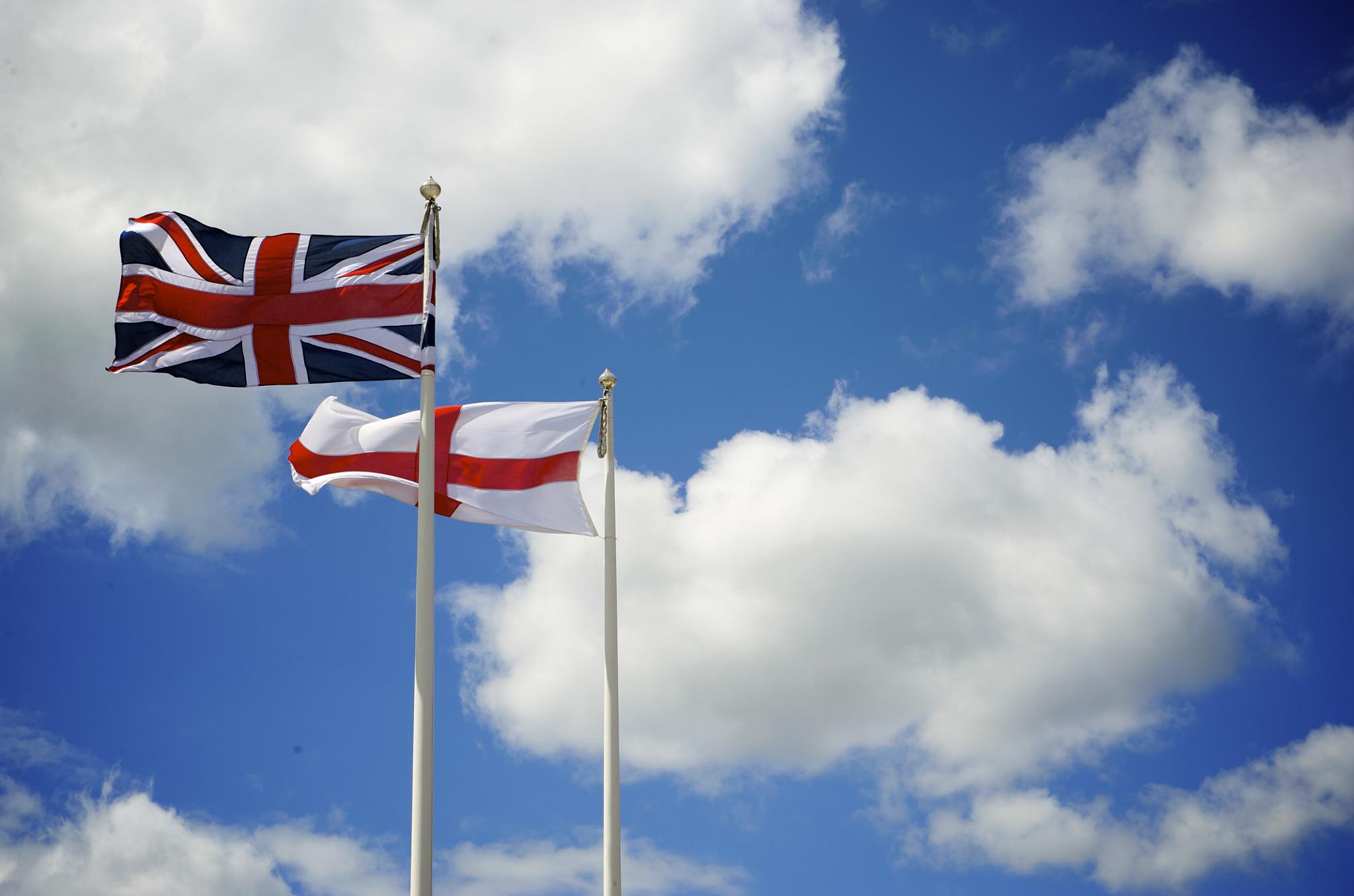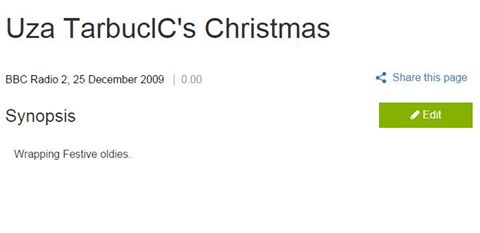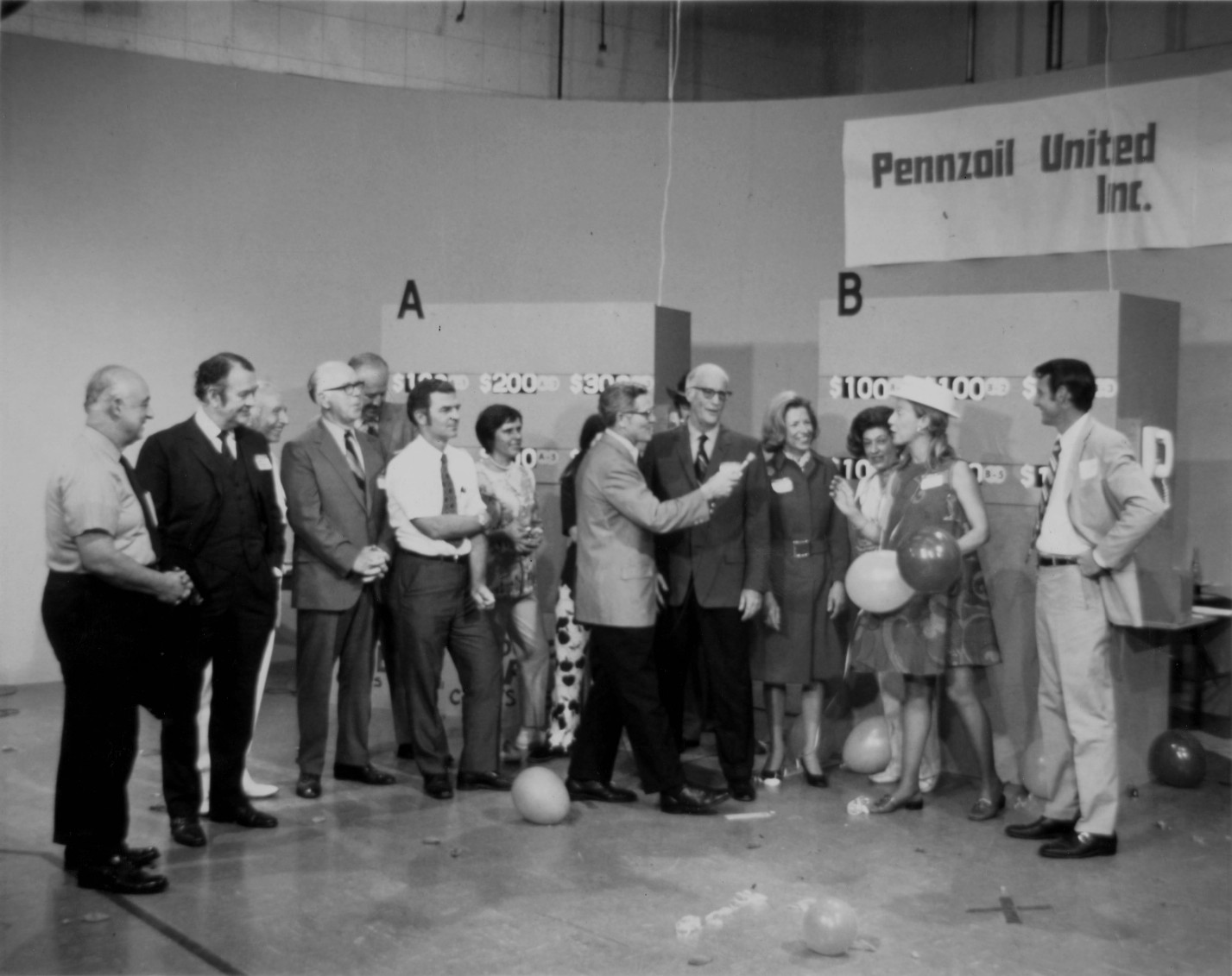|
Pass The Buck (1998 UK Game Show)
''Pass the Buck'' was a British television quiz show which aired on daytime on BBC One. It ran for three series from 12 October 1998 to 28 June 2000. The programme was originally hosted by Fred Dinenage in 1998, then by Eamonn Holmes from 1999 to 2000. Format Fast Buck The players stood on the top step of a staircase, and one was chosen at random to begin the round. The host gave a general category (i.e. "United Kingdom") and a detail about it (i.e. "days on which the Union Jack is flown on government buildings"). Each player in turn had to give a valid answer to remain in the game. The first player who gave an invalid answer, repeated any opponent's previous answer, or failed to respond within three seconds was eliminated for the day. All remaining players moved one step down toward the studio floor, and the host gave a new category and detail; play then resumed with the next player in line. In some cases, the host would give an example of a valid response and warn the players n ... [...More Info...] [...Related Items...] OR: [Wikipedia] [Google] [Baidu] |
Game Show
A game show is a genre of broadcast viewing entertainment (radio, television, internet, stage or other) where contestants compete for a reward. These programs can either be participatory or Let's Play, demonstrative and are typically directed by a game show host, host, sharing the rules of the program as well as commentating and narrating where necessary. The history of game shows dates back to the invention of television as a medium. On most game shows, contestants either have to answer questions or solve puzzles, typically to win either money or prizes. Game shows often reward players with prizes such as cash, trips and goods and services provided by the show's sponsor. History 1930s–1950s Game shows began to appear on radio and television in the late 1930s. The first television game show, ''Spelling Bee (game show), Spelling Bee'', as well as the first radio game show, ''Information Please'', were both broadcast in 1938; the first major success in the game show genre was ... [...More Info...] [...Related Items...] OR: [Wikipedia] [Google] [Baidu] |
Union Jack
The Union Jack, or Union Flag, is the ''de facto'' national flag of the United Kingdom. Although no law has been passed making the Union Flag the official national flag of the United Kingdom, it has effectively become such through precedent. It is sometimes asserted that the term ''Union Jack'' properly refers only to naval usage, but this assertion was dismissed by the Flag Institute in 2013 following historical investigations. The flag has official status in Canada, by parliamentary resolution, where it is known as the Royal Union Flag. It is the national flag of all British overseas territories, being localities within the British state, or realm, although local flags have also been authorised for most, usually comprising the blue or red ensign with the Union Flag in the canton and defaced with the distinguishing arms of the territory. These may be flown in place of, or along with (but taking precedence after) the national flag. Governors of British Overseas Territories ha ... [...More Info...] [...Related Items...] OR: [Wikipedia] [Google] [Baidu] |
1998 British Television Series Debuts
1998 was designated as the ''International Year of the Ocean''. Events January * January 6 – The ''Lunar Prospector'' spacecraft is launched into orbit around the Moon, and later finds evidence for frozen water, in soil in permanently shadowed craters near the Moon's poles. * January 11 – Over 100 people are killed in the Sidi-Hamed massacre in Algeria. * January 12 – Nineteen European nations agree to forbid human cloning. * January 17 – The ''Drudge Report'' breaks the story about U.S. President Bill Clinton's alleged affair with Monica Lewinsky, which will lead to the United States House of Representatives, House of Representatives' impeachment of him. February * February 3 – Cavalese cable car disaster (1998), Cavalese cable car disaster: A United States military pilot causes the deaths of 20 people near Trento, Italy, when his low-flying EA-6B Prowler severs the cable of a cable-car. * February 4 – The 5.9 February 1998 Afghanistan earthquake, Afghanistan ... [...More Info...] [...Related Items...] OR: [Wikipedia] [Google] [Baidu] |
2000s British Game Shows
S, or s, is the nineteenth letter in the Latin alphabet, used in the modern English alphabet, the alphabets of other western European languages and others worldwide. Its name in English is ''ess'' (pronounced ), plural ''esses''. History Origin Northwest Semitic šîn represented a voiceless postalveolar fricative (as in 'ip'). It originated most likely as a pictogram of a tooth () and represented the phoneme via the acrophonic principle. Ancient Greek did not have a phoneme, so the derived Greek letter sigma () came to represent the voiceless alveolar sibilant . While the letter shape Σ continues Phoenician ''šîn'', its name ''sigma'' is taken from the letter ''samekh'', while the shape and position of ''samekh'' but name of ''šîn'' is continued in the '' xi''. Within Greek, the name of ''sigma'' was influenced by its association with the Greek word (earlier ) "to hiss". The original name of the letter "sigma" may have been ''san'', but due to the complica ... [...More Info...] [...Related Items...] OR: [Wikipedia] [Google] [Baidu] |
1990s British Game Shows
Year 199 ( CXCIX) was a common year starting on Monday (link will display the full calendar) of the Julian calendar. At the time, it was sometimes known as year 952 ''Ab urbe condita''. The denomination 199 for this year has been used since the early medieval period, when the Anno Domini calendar era became the prevalent method in Europe for naming years. Events By place Roman Empire * Mesopotamia is partitioned into two Roman provinces divided by the Euphrates, Mesopotamia and Osroene. * Emperor Septimius Severus lays siege to the city-state Hatra in Central-Mesopotamia, but fails to capture the city despite breaching the walls. * Two new legions, I Parthica and III Parthica, are formed as a permanent garrison. China * Battle of Yijing: Chinese warlord Yuan Shao defeats Gongsun Zan. Korea * Geodeung succeeds Suro of Geumgwan Gaya, as king of the Korean kingdom of Gaya (traditional date). By topic Religion * Pope Zephyrinus succeeds Pope Victor I, as the ... [...More Info...] [...Related Items...] OR: [Wikipedia] [Google] [Baidu] |
BBC Genome Project
The BBC Genome Project is an online searchable database of programme listings initially based upon the contents of the ''Radio Times'' from the first issue in 1923 to 2009. Television listings from post-2009 can be accessed via the BBC Programmes site. History Prior BBC Genome is not the first online searchable database. In April 2006, they gave the public access to Infax – their only electronic programme database at the time. It contained around 900,000 entries but not every programme ever broadcast, and it ceased operation in December 2007. The front page of the website is still available to see via the Internet Archive. After Infax ceased, a message on the website said that it would be incorporating in the information into individual programme pages. In 2012, Infax was replaced by the database Fabric but this is only for internal use within the BBC. ''Radio Times'' In December 2012, the BBC completed a digitisation exercise, scanning the listings from ''Radio Times'' of al ... [...More Info...] [...Related Items...] OR: [Wikipedia] [Google] [Baidu] |
Portable Television
A handheld television is a portable device for watching television that usually uses a TFT LCD or OLED and CRT color display. Many of these devices resemble handheld transistor radios. History In the 1970s and early 1980s, Panasonic and Sinclair Research released the first TVs which were small enough to fit in a large pocket; called the Panasonic IC TV MODEL TR-001 and MTV-1. Since LCD technology was not yet mature at the time, the TV used a minuscule CRT which set the record for being the smallest CRT on a commercially marketed product. Later in 1982, Sony released their first model - the FD-200, which was introduced as “Flat TV” later renamed after the nickname Watchman, a play on the word Walkman. It had grayscale video at first. Several years later, a color model with an active-matrix LCD was released. Some smartphones integrate a television receiver, although Internet broadband video is far more common. Since the switch-over to digital broadcasting, handhe ... [...More Info...] [...Related Items...] OR: [Wikipedia] [Google] [Baidu] |
Quiz Show
A game show is a genre of broadcast viewing entertainment (radio, television, internet, stage or other) where contestants compete for a reward. These programs can either be participatory or demonstrative and are typically directed by a host, sharing the rules of the program as well as commentating and narrating where necessary. The history of game shows dates back to the invention of television as a medium. On most game shows, contestants either have to answer questions or solve puzzles, typically to win either money or prizes. Game shows often reward players with prizes such as cash, trips and goods and services provided by the show's sponsor. History 1930s–1950s Game shows began to appear on radio and television in the late 1930s. The first television game show, '' Spelling Bee'', as well as the first radio game show, ''Information Please'', were both broadcast in 1938; the first major success in the game show genre was ''Dr. I.Q.'', a radio quiz show that began in 1939. ' ... [...More Info...] [...Related Items...] OR: [Wikipedia] [Google] [Baidu] |
Fred Dinenage
Frederick Edgar Dinenage MBE (born 8 June 1942) is an English author and retired broadcaster and television presenter. His television career spanned nearly 60 years, including the long-running children's programme ''How'' and ITV's regional programming in the south of England. Dinenage retired from ITV Meridian on 16 December 2021, after 38 years as a news anchor. Early life and education Dinenage was born in Birmingham. He was educated at Portsmouth Grammar School (a state grammar school during the time he attended it; it later became an independent school). Career Dinenage has appeared as presenter of many British television programmes (many of them produced by Southern Television, and its successors TVS and Meridian Broadcasting), such as '' Tell The Truth'', ''How'' and its successor ''How 2'', as well as the BBC quiz show '' Pass The Buck'' and ''Gambit'' (produced by Anglia). News anchor Dinenage began his career at Southern Television in 1964, as a presenter on ''T ... [...More Info...] [...Related Items...] OR: [Wikipedia] [Google] [Baidu] |
British Television
Regular television broadcasts in the United Kingdom started in 1936 as a public service which was free of advertising, which followed the first demonstration of a transmitted moving image in 1926. Currently, the United Kingdom has a collection of free-to-air, free-to-view and subscription services over a variety of distribution media, through which there are over 480 channelsTaking the base Sky EPG TV Channels. A breakdown is impossible due to a) the number of platforms, b) duplication of services, c) regional services, d) part time operations, and e) audio. For the Sky platform alone, there are basically 485 TV channels, additionally 57 "timeshifted versions", 36 HDTV versions, 42 regional TV options, 81 audio channels, and 5 promotion channels as of mid-2010 for consumers as well as on-demand content. There are six main channel owners who are responsible for most material viewed. There are 27,000 hours of domestic content produced a year, at a cost of £2.6 billion.Taki ... [...More Info...] [...Related Items...] OR: [Wikipedia] [Google] [Baidu] |
BBC One
BBC One is a British free-to-air public broadcast television network owned and operated by the BBC. It is the corporation's flagship network and is known for broadcasting mainstream programming, which includes BBC News television bulletins, primetime drama and entertainment, and live BBC Sport events. It was launched on 2 November 1936 as the BBC Television Service and was the world's first regular television service with a high level of image resolution. It was renamed BBC TV in 1960 and used this name until the launch of the second BBC channel, BBC2, in 1964. The main channel then became known as BBC1. The channel adopted the current spelling of BBC One in 1997. The channel's annual budget for 2012–2013 was £1.14 billion. It is funded by the television licence fee together with the BBC's other domestic television stations and shows uninterrupted programming without commercial advertising. The television channel had the highest reach share of any broadcaster in th ... [...More Info...] [...Related Items...] OR: [Wikipedia] [Google] [Baidu] |





